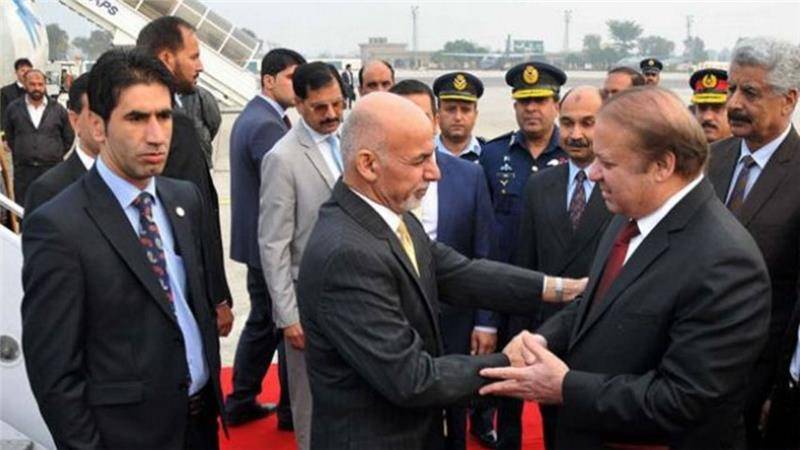The representatives of Pakistan, Afghanistan, China and the United States-the Quadrilateral Coordination Group (QCG) members, adopted a roadmap stipulating the stages and steps of a peace process. It entailed for direct peace talks between the representatives of the Afghan government and Taliban groups, expected to take place by the end of February 2016. The QCG members stressed on Feb 6, 2016 in a meeting held in Islamabad, that the outcome of the reconciliation process should be a political settlement that results in the cessation of violence and durable peace in Afghanistan. A maximum numbers of Taliban groups are urged to join peace talks. As Pakistan’s advisor for foreign affairs Sartaj Aziz said, “In our view, a clear, well defined and actionable roadmap for the peace process between the Afghan government and Taliban groups is important.”
The Taliban leaders have yet not indicated if they are withdrawing their preconditions for considering end to hostilities and joining parleys.
The Taliban are opposed to the American military presence in Afghanistan and resent the end of Taliban rule in Afghanistan with the American invasion of Kabul following events of 9/11, 2001. It is nearly fifteen years now, that they were driven out of power by the US-led NATO forces. China’s role as QCG member is perhaps more acceptable to the Taliban as they seem to have more confidence in China as a friend playing a useful role in bringing peace to Afghanistan. China is in a position to influence the United States for creating more favourable conditions acceptable to all sectors of society in Afghanistan.
Terrorism is a problem for both Afghanistan and Pakistan. War on terror will continue as long as terrorism persists. The Quetta suicide blast is the latest violent activity that killed 10 and injured 23 people. Pakistan’s Security Forces, vital institutions and innocent citizens are the target of terrorism. If stability comes to Afghanistan it will bring peace and security to Pakistan as well. The situation regarding peace and security is very complex involving many internal and external factors.
Let us not forget the reality that most of our problems with militancy originate in the highly flawed polices that have been pursued by the state in the past. Unfortunately Pakistan’s preferred mode of power projection has been its dependence on proxies. The policy that civil-military cooperation is now following is fact based. The operation Zarb-e-Azb has been a great success but much more has still to be done to eliminate terrorism completely.
We cannot afford to let complacency creep in. The security forces have to continue the war against terrorism, based on efficient intelligence. The difficult task of cutting terrorism from its roots has to be carried out putting an end to networks and cells of home-grown terrorists as well as the violence that comes from outside our national borders. The world needs to find the will and unity to defeat terrorists no matter what their origin and intent is. Pakistan’s foreign policy has to focus on a need to resolve serious issues posed by India, especially the Kashmir, water and continuous problem of terrorism.
A courageous and enlightened political leadership can help avoid many of the problems that are turning into serious crises. Timely action on issues confronting the nation and to keep talking with stakeholders in a democratic and amicable style always contributes to good governance and problems solving as well as accepting the reality rather than being always in a state of denial. If there are problems and crises, they have to be smartly addressed without loss of time. If leadership keeps people engaged constructively the bad and evildoers cannot do any harm. Managing things is different from making politics as an excuse to exploit.
Negotiating for peace and stability means a give and take-it involves effective role of guarantees. Key to the solution is filling power vacuum, where peace talks will succeed only if Taliban stop violence and that the Afghan government offers them tangible incentives.
Greater cooperation between the two countries is a way forward. Diverging agendas are not likely to help.
Cooperation becomes meaningful only if sincere efforts are involved to find a way out of complex factors that hinder progress in the peace process. This positive suggestion has to be a two-way process. Otherwise it hardly becomes a sagacious suggestion or a step for an acceptable resolve. Pakistan and Afghanistan need to work together as the instability in both countries has the same base, namely the American foreign policy, specially since 9/11 and the consequences of American approach to politico-geographic scenario of the middle east since after the invasion of Iraq and its impact on politics and strategy of the gulf countries and their relations with neighbors.
Restoration of durable peace in Afghanistan remains one of the most serious challenges which our region faces. For Pakistan a peaceful and stable Afghanistan is of vital significance. It is therefore making sincere efforts to promote reconciliation talks between the government of Afghanistan and Afghan Taliban. Pakistan’s proactive involvement in this process is imperative for success. Afghan peace is a top priority of Pakistan’s civil-military leadership to persuade, motivate and engage reluctant Taliban leaders into dialogue.
Once chances of peace and stability in Afghanistan start looking bright the removal of safe havens for agents of violence and destruction will become a reality. Immediate ceasefire or end to hostilities and violence is therefore essential before one could expect positive results and chances of direct face to face talks between the Afghan government and Afghan Taliban to be successful. An enabling environment has to be created for the Afghan government as the direct talks between the government and the Taliban is the only way forward.






